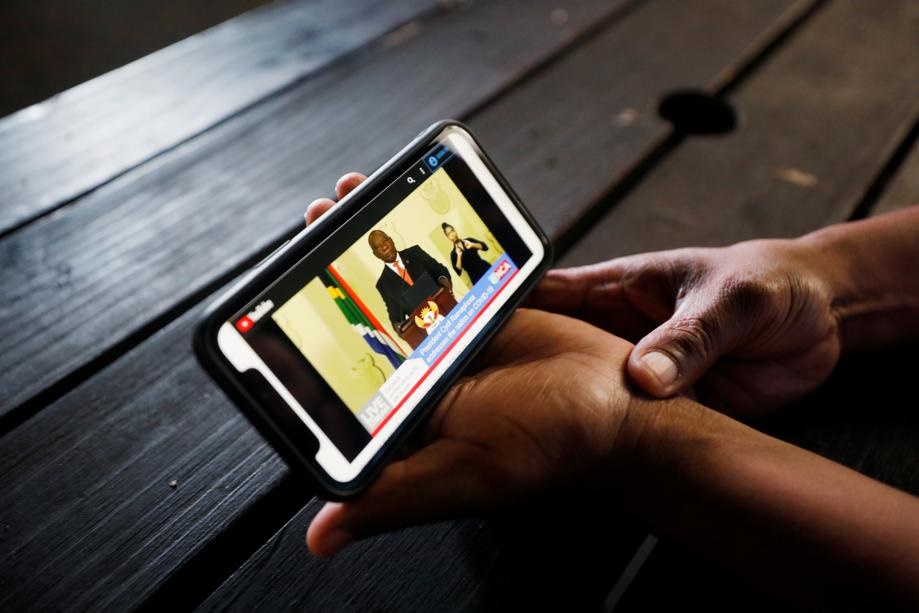
President Cyril Ramaphosa has announced that the country will go into a 21-day lockdown to slow down the spread of the Covid-19 coronavirus.
Here is everything you need to know about the lockdown and how it could affect you:
• All South Africans will have to stay home from midnight on Thursday March 26 until midnight on Thursday April 16.
• Health workers in the public and private sectors, emergency personnel, those in security services – such as the police, traffic officers, military medical personnel, soldiers – will be exempt from the lockdown. Those involved in the production, distribution and supply of food and basic goods, essential banking services, the maintenance of power, water and telecommunications services, laboratory services, and the provision of medical and hygiene products, will also be exempt. The government will publish a full list of personnel soon.
• Nobody will be allowed to leave their homes except under strictly controlled circumstances, such as to seek medical care, buy food, medicine and other supplies or collect a social grant.
• Only pharmacies, laboratories, banks, essential financial and payment services, including the JSE, supermarkets, petrol stations and health care providers will be open. All other shops and businesses will be closed.
• Temporary shelters with the necessary hygiene standards will be identified for homeless people.
• Businesses that can continue their operations remotely will be allowed to do so.
• The South African National Defence Force will help the police to ensure that the lockdown measures are followed.
• Screening and testing for Covid-19 will be expanded, with community health teams focusing first on high density and high-risk areas.
• Emergency water supplies will be provided to informal settlements and rural areas.
• South African citizens and residents who arrive from high-risk countries will be placed under quarantine for 14 days.
• Non-South Africans who arrive on flights from high-risk countries which were prohibited in Ramaphosa’s announcement last week will be turned back.
• International flights to Lanseria Airport are temporarily suspended.
• International travellers who arrived in South Africa after March 9 2020 from high-risk countries will be confined to their hotels until they have completed a 14-day period of quarantine.
• A Solidarity Fund has been set up. South African businesses, organisations and individuals can contribute to this fund which will focus on combating the spread of Covid-19 and help to care for those who are ill and support those whose lives are disrupted. The Fund’s website is www.solidarityfund.co.za and you can deposit monies into the account from Monday night.
• Regulations are in place to prohibit unjustified price hikes and to ensure shops maintain adequate stocks of basic goods and to prevent people from “panic buying”. Manufacturers and distributors of basic necessities have indicated to government that there will be a continuous supply of these goods; there is therefore no need for stockpiling of any items.
• Old age pensions and disability grants will be available for collection from March 30 and 31, while other categories of grants will be available for collection from April 1.
• Worried about your livelihood? Government is working on proposals, including a special dispensation for companies affected by the virus. Through this proposal, employees will receive wage payment through the Temporary Employee Relief Scheme, which will enable companies to pay employees directly during this period and avoid retrenchment.
• Any employee who falls ill through exposure at their workplace will be paid through the Compensation Fund.
• If necessary, the reserves within the UIF system will be used to help workers in SMEs and other vulnerable firms who are faced with loss of income and whose companies are unable to provide support.
• A tax subsidy of up to R500 per month for the next four months will be provided for private sector employees earning below R6 500.
• The Department of Small Business Development has made over R500 million available immediately to assist SMEs.
• The government will act very strongly against any attempts at corruption and profiteering from this crisis, with the president warning that he has “directed that special units of the NPA be put together to act immediately and arrest those against who we find evidence of corruption”.
 | ||||||||||||||||||||||||||
Get in touchCity Press | ||||||||||||||||||||||||||
| ||||||||||||||||||||||||||
| Rise above the clutter | Choose your news | City Press in your inbox | ||||||||||||||||||||||||||
| City Press is an agenda-setting South African news brand that publishes across platforms. Its flagship print edition is distributed on a Sunday. |




 Publications
Publications
 Partners
Partners








